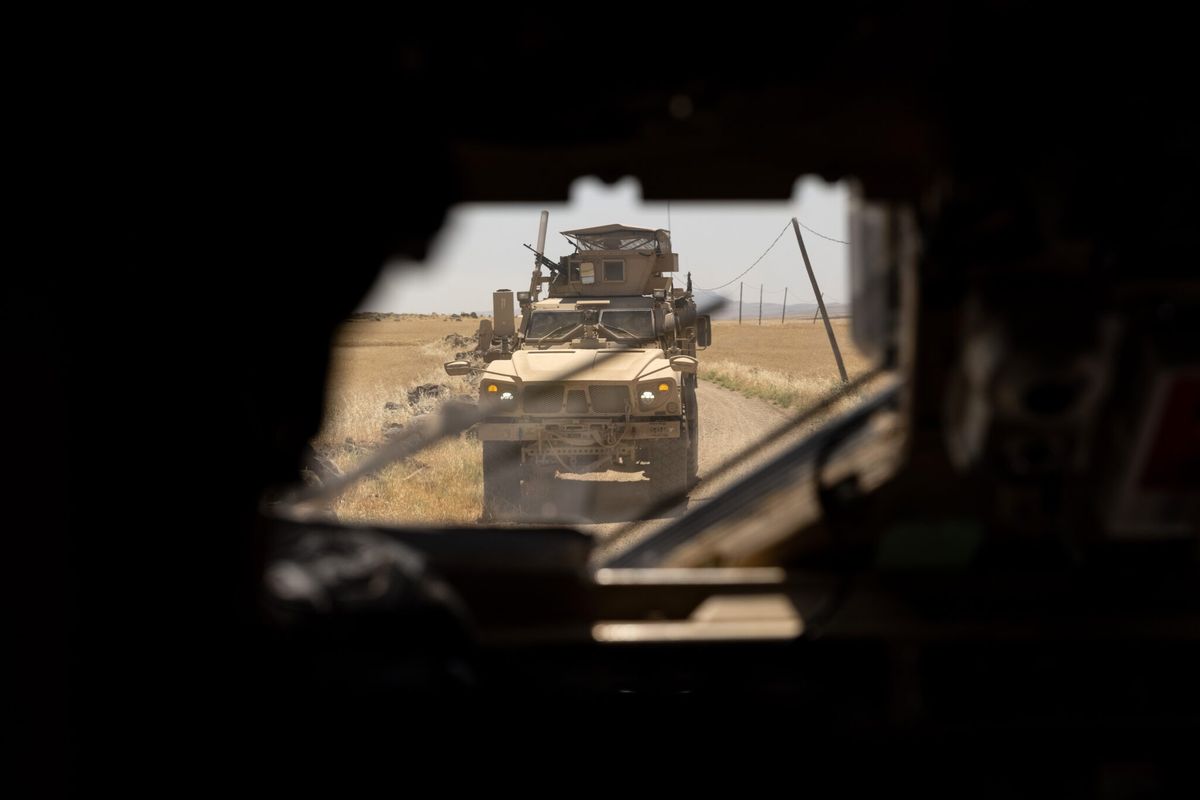Over the past month, the exchange of words between Turkish President Recep Tayyip Erdogan and Iraqi Prime Minister Haider al Abadi has reached a bitter crescendo. Focused primarily on the Turkish military base at Bashiqa in northern Iraq, which Abadi says is an unsanctioned violation of Iraqi territory, the diplomatic spat has prompted more serious real world escalation in the form of Turkish reinforcements to both Bashiqa and the Turkish border town of Silopi. The Cipher Brief asked Aaron Stein, Senior Fellow at the Atlantic Council’s Rafik Hariri Center for the Middle East, what to make of this feud, and what it means for the region.
The Cipher Brief: What tactical, strategic, and political motivations lie behind Turkey’s decision to maintain the Bashiqa airbase in Iraq?
Aaron Stein: Mosul has a symbolic meaning for Turkish nationalists and before the rise of the Islamic State (IS), was a major logistical hub for Turkish diplomacy, foreign trade, and intelligence. In terms of Turkish geopolitical interests, Mosul took on an even greater political and security significance before IS. Ankara was a key backer of Iraqqiya, the Iraqi nationalist, but overwhelmingly Sunni, political bloc that ran against former Prime Minister Nuri Al-Maliki’s political coalition, State of Law. Iraqqiya was out-maneuvered in parliamentary negotiations following the 2010 election and eventually fractured. Turkey’s closest allies in Iraq are now the Nujaifi brothers, Atheel and Osama. Atheel is the former governor of Ninewa province – of which Mosul is the capital – and closely allied with Masoud Barzani, the President of the Kurdistan Regional Government (KRG) and the leader of the Kurdistan Democratic Party (KDP). Osama al Nujaifi is the head of the Sunni political party, Mutahidun, a party that has fractured, leaving it with a very small number of seats in the Iraqi parliament.
Atheel and Osama are pushing for Ninewa to be turned into a federal region, similar to the KRG. The Turkish military is training the Nujaifi’s independent militia, the Ninewa Guards, a small and poorly equipped fighting force based at Bashiqa. The base itself is in de-facto KDP-KRG controlled territory, with a few KDP Asayish (the KRG’s intelligence agency) and Peshmerga (KRG military) controlling the entry road and deployed alongside Turkish soldiers present at the base. Turkey intends to use the base as leverage to ensure that the Nujaifis play a role in post-Islamic State Mosul and to bolster Atheel’s image in preparation for the next local elections in Iraq. Ankara would like to see its proxy returned to power, replacing the current governor, Noofal al-Akub.
The base could also be used as a hedge against the Kurdistan Workers’ Party (PKK) in Sinjar, but in my opinion, it is on the wrong side of the Tigris river to support combat operations in that part of Iraq. Turkey could, however, hold that part of Iraq with forces from inside Turkey – something that outside observers should keep a close eye on.
TCB: What are the major factors driving Iraqi Prime Minister Haider al Abadi’s opposition to the base?
AS: Domestic politics.
It is not just Prime Minister Abadi, but almost every political faction in Iraq – with the exception of Mutahidun and the KDP – is against the Turkish base in Bashiqa. Abadi has managed to leverage President Recep Tayyip Erdogan’s rhetoric to bolster his nationalist credentials, and his frequent rhetorical attacks on Turkey have been, in the short term, politically beneficial. However, the base also gives ammunition to his political opponents, with Maliki being the most prominent. Maliki wants to be prime minister again, and he has used this issue to attack Abadi for being weak and failing to protect Iraqi sovereignty, an unbelievably hypocritical line of attack considering Maliki’s close links to Iran.
The most damaging part about this, however, is that it gives various Shia militias, allied with Iran and Maliki against Abadi and the central government, an excuse to play spoiler in the Mosul Operation, where they have – for now – agreed to play a very limited role.
The pro-government Turkish media has incorrectly attributed Abadi’s rhetoric to Iran. Abadi is not in Iran’s pocket. Far from it. He is working to blunt Iranian influence in Baghdad, something made more complicated by Turkish rhetoric. It is an odd irony that Turkey is working to blunt Iranian influence in Iraq, yet the rhetoric that Erdogan uses ends up bolstering Iraqi officials linked to Iran. Erdogan has a domestic political incentive to “talk tough,” but his domestic considerations are undermining Turkish foreign policy.
TCB: How do you see Iraqi-Turkish relations evolving after the fall of Mosul? What are the major pitfalls that could exacerbate relations?
AS: Relations will remain tense. All of the political dynamics – in both countries – favor continued rhetorical hostility. The Iraqi central government and almost every political faction believe that Turkey is working to break up the Iraqi state. Turkey, on the other hand, believes that Iran is actively working to undermine its position in northern Iraq. In addition, tension remains over Turkey’s role in the independent KRG exports of oil pumped in Iraqi Kurdistan, an issue made even more complicated by the Peshmerga’s current control over Kirkuk, which was not part of KRG territory prior to the rise of IS.
In Turkey, Erdogan has formed an Islamist-Nationalist alliance following the failed coup attempt against him this July, and he intends to leverage this political coalition to pass a new constitution out of parliament and on to a public referendum. Erdogan has every incentive to remain a polarizing figure. The image of a tough Turkey plays well back home, despite the longer term harm that this rhetoric is doing to Turkish interests abroad.
In short, it’s a mess.












